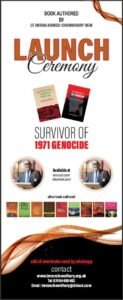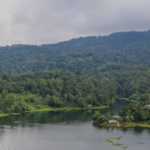In the summer of 1971, I was just eleven years old—too young to fully grasp the geopolitics unfolding around me, but old enough to remember the fear, the displacement, the hunger, and the hope. I was one of the millions who became a refugee during the Bangladesh Liberation War, a brutal conflict that cost millions of lives and forced families like mine to flee East Pakistan, now Bangladesh, and seek shelter in the crowded refugee camps of neighbouring India.
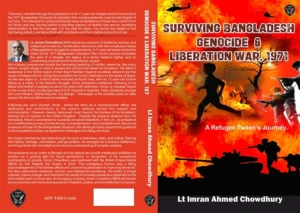
What I remember most vividly from that time, apart from the uncertainty of survival, were the radio broadcasts crackling through camp loudspeakers, speaking of international concern, of the British Parliament debating our fate, of Conservative MPs visiting camps like ours. Even amid such hardship, those voices from abroad—especially from the United Kingdom—offered a glimmer of dignity and solidarity. They reminded us that we were not forgotten.
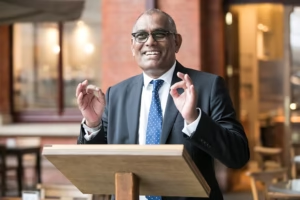
That was the genesis of Bangladesh: forged in blood and hardship, but also midwifed by the compassion and support of the international community—of which Britain, under the leadership of the Conservative government led by Sir Edward Heath, played a crucial part.
A War and the World Watching
The events that unfolded in 1971 were not just a regional issue—they were a global humanitarian crisis. The Pakistani military crackdown on March 25, 1971, known as Operation Searchlight, unleashed a campaign of violence across East Pakistan. Entire villages were burned, intellectuals were executed, women were raped, and millions fled.
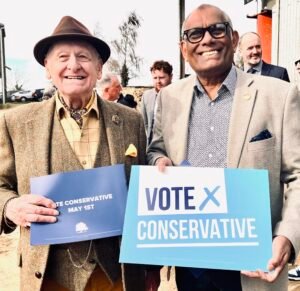
India, under Prime Minister Indira Gandhi, opened its borders to welcome the tide of Bengali refugees. But it was the United Kingdom—home to a growing community of East Pakistani migrants—where significant agitation and mobilisation took place. The diaspora in Britain, already active in trade unions and civic life, organised rallies, hunger strikes, and fundraisers. Their earnings from factories, brick fields, textile mills, and restaurants were channelled into relief for Bangladesh—an early testament to the power of grassroots action in Britain’s multicultural democracy.
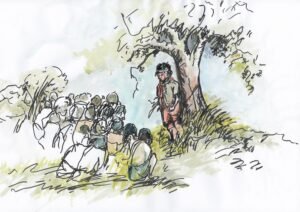
I still recall hearing stories in the camp of how Conservative MPs—members of the same party I would one day join—visited the refugee settlements in India. These were not symbolic visits. They were direct appeals to the UK government to take a moral stand, to extend aid, to recognise the suffering of a people yearning for self-determination.
Sir Edward Heath and a Turning Point in History
The Conservative government under Sir Edward Heath, which came into power in June 1970, may not be the first image that comes to mind when people think of liberation movements. But history, when examined closely, reveals the nuanced and principled actions that helped shape our independent future.
Under Heath’s leadership, the UK extended diplomatic support and humanitarian aid during a time of extraordinary crisis. British international aid agencies, backed by government resources, were deployed to help Indian refugee camps. Relief flights, food parcels, clothing drives, and foreign aid packages were sent from the UK. British Land Rover vehicles—an iconic symbol of support at the time—were gifted to the fledgling Bangladeshi government and distributed to critical sectors including the military, health services, and border security.
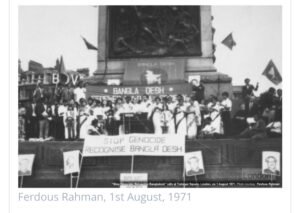
One of those Land Rovers, I remember, was issued to my father’s wing of the Bangladesh Rifles. That vehicle, rugged and dependable, became a symbol of stability in an unstable land. It was more than just a machine—it was a message that the world had not abandoned us.
The British government also played an important diplomatic role in post-war developments. When Bangabandhu Sheikh Mujibur Rahman was finally released from Pakistani captivity in January 1972, it was the United Kingdom that received him on his way home. Sir Edward Heath hosted him with the full respect accorded to a head of state. For millions of us, that meeting was more than diplomatic protocol—it was moral recognition of our struggle and our nationhood.
Diaspora Determination: The Role of British Bangladeshis
While state-level support was vital, it was the Bangladeshi diaspora in the UK that formed the backbone of sustained relief efforts. In the early 1970s, most of them were working-class immigrants from Sylhet—employed in steel plants, textile mills, garment factories, and catering businesses. Despite their own financial constraints, they organised relentlessly: holding rallies in Trafalgar Square, lobbying MPs, and sending back donations raised from their weekly wages.
Clothing, food, money, and medicine poured into the camps and later into war-torn Bangladesh. From London to Luton, from Birmingham to Bradford, our diaspora built bridges of empathy that spanned continents. Their acts of generosity are etched in my memory as deeply as the violence and displacement.
This legacy of giving shaped my understanding of public service. That moment—when those with very little still gave what they could—planted the seed in my heart. I vowed that if I ever had the opportunity, I would honour that example.
From Refugee Camp to Conservative Councillor
In the 1990s, I moved to the UK, now a proud British Bangladeshi, bringing with me the memories of my childhood, the gratitude for British support, and a passion to serve. It was a natural choice for me to join the Conservative Party—the same party whose leaders and parliamentarians stood with Bangladesh in 1971, and the same party that, to this day, values responsibility, self-determination, and community action.
Over the years, I have had the privilege to serve as a Councillor in West Northamptonshire Council. My mission has been simple: to give back to the country that gave my people refuge, respect, and recognition when we needed it most.
I am especially proud to have been honoured with several recognitions, including:
-
The British Empire Medal – a symbol of national gratitude and community leadership.
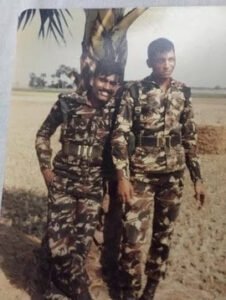
-
The Rose of Northamptonshire Award – recognising service to local people.
-
Freedom of the City of London – a deeply meaningful tribute, connecting my heritage to the very heart of British civic tradition.
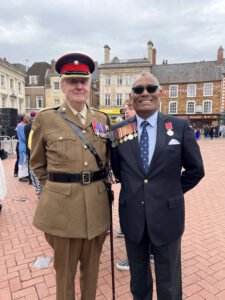
But perhaps the greatest honour has been the trust and friendship of the people of Upton and the wider West Northamptonshire community.
Why I’m Standing Again
As we approach another election, I am once again putting myself forward to serve as Councillor for Upton. This is not just a campaign—it’s a continuation of a promise I made to myself as a boy in a refugee camp.
We live in complex times. Local communities face real challenges—housing, transport, education, health, integration. These are not abstract issues; they affect people’s lives, their futures, their children. Having walked the path from hardship to hope, I bring lived experience, a deep sense of duty, and a global understanding to my local work.
I believe that public service should be rooted in gratitude, guided by principle, and driven by action. That’s what I’ve tried to offer, and that’s what I will continue to offer if you grant me the privilege of serving again.
A Personal Appeal
To my neighbours, supporters, and friends in Upton and West Northamptonshire:
I am not just asking for your vote—I am asking you to be part of a story that began decades ago in the muddy refugee camps of India, moved through the halls of British Parliament, and now continues in the council chambers where decisions are made about bins, schools, roads, and futures.
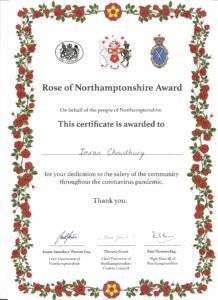
Your support means more than political success. It validates the arc of history—from refugee to representative, from survival to service.
We are all, in some way, beneficiaries of the kindness of others. In 1971, I was a child who received that kindness. Today, as your Councillor, I work every day to pass it on.
Let’s keep building together—with pride, with purpose, and with gratitude.
Imran Chowdhury BEM
Candidate , Upton Ward
West Northamptonshire Council Election 2025 |Proud 1971 Refugee | Conservative | Community Servant


